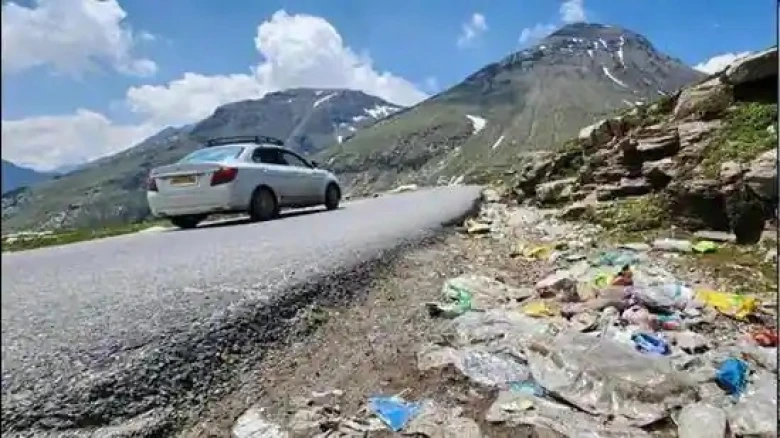- Rehan Khan
On 19th July, in a bid to promote sustainable tourism and environmental responsibility, the Himachal Pradesh High Court has proposed that the State Government make it mandatory for tourists to carry a garbage bag to manage their waste during their visits. The instant order was originated from a series of petitions addressing environmental concerns in the state. This initiative was introduced with the aims to reduce littering and in order to ensure that tourists maintain the cleanliness of the state’s scenic locations.
A bench comprising Justices Tarlok Singh Chauhan and Sushil Kukreja highlighted the success of similar measures undertaken in states like Goa and Sikkim. For instance, in Sikkim it is mandatory for all tourist vehicles to carry a large garbage bag, with tour operators, travel agencies, and vehicle drivers responsible for informing tourists about using these bags for waste collection and disposal. The Court noted that such measures are important as they promote community participation and significantly contribute to sustainable tourism.
In its order, the court underscored the urgency of implementing similar measures in Himachal Pradesh. Mandating garbage bags for tourists can play a crucial role in preserving the state’s natural beauty while promoting eco-friendly tourism practices.
In addition to the garbage bag mandate, the court proposed several other measures to enhance waste management practices and sustainability. One notable suggestion was for the State Government to consider imposing solid waste management charges on tourists, ensuring visitors contribute to the environment’s upkeep.
The Court’s order further includes a comprehensive set of directives which aimed at effective waste management. One such directive requires audits of the waste carried by trekkers. This measure aims to quantify waste generated by visitors and collect user fees to fund waste management and environmental conservation efforts, ensuring tourism activities do not adversely impact the state’s natural landscapes.
Another significant directive involves establishing small dry waste storage facilities at various checkpoints. These units will serve as temporary repositories for waste collected from tourists until it can be transported to central waste management facilities. This step is crucial for efficient waste management and preventing littering in remote and ecologically sensitive areas.
Additionally, the court emphasized about forming committees comprising representatives from local panchayats, the Tourism Development Corporation (TDC), the Ecotourism Society, and Non-Governmental Organizations (NGOs). These committees will oversee waste management activities, coordinate restoration work, and facilitate rescue operations, ensuring a holistic and community-driven approach to environmental conservation.
One of the key directive stated by the court was transparency in managing user fees collected at checkpoints. The order mandates that these funds be utilized exclusively for waste management and environmental conservation activities, building trust among tourists and locals and encouraging greater participation in sustainable practices.
Furthermore, the court directed the Himachal Pradesh Government to organize training programs for panchayats and urban local bodies on waste segregation and the operation of material recovery facilities. These training sessions, conducted in collaboration with relevant NGOs, aim to equip local authorities with the knowledge and skills necessary for effective waste management. This initiative is part of a broader effort to institutionalize best practices in waste management across the state.
Case title: Suleman vs. Union of India
Case no.: CWP No.2369 of 2018

